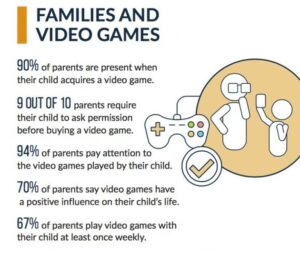Why my family doesn’t own a video game
My oldest son was stirring his Oreo milkshake, eating one methodical bite at a time at the local fast-food joint recently, when the conversation turned to his friends.
“I’d much rather spend time at his house than mine,” my son said, referencing a boy his age he had just visited. “Our house is boring.”

I could have been offended, but I wasn’t. Instead, I took a bite of my strawberry sundae and let the discussion progress naturally, free of any knee-jerk reactions.
“He has videos games,” he said. “We don’t.”
A thousand thoughts swirled in my head that went unsaid: We have a large yard. We have a basketball goal. We have a bicycle for every member of the family. We have a basement. We have a large television set. We have a Lego collection that would rival Legoland’s. Besides, what about those starving children in Africa who don’t have any toys?!
But I didn’t say any of that. Instead, I drove the discussion in a different direction: “If we had video games, what would you do less of that you do now?”
My son was stuck. If he answered truthfully – reading? playing outside? doing homework? – then he would be playing into my hands. Thus, we called it a truce, went home, and had a great game of hoops at our old “boring” home.
The Entertainment Software Association reported this year that exactly 50 percent of Americans own either a dedicated video game console or a handheld system.
My household, though, isn’t one of them. Even though we allow our children to play video games at other homes and we let them play the occasional iPhone game of Candy Crush, too, we don’t own a video game console. Perhaps that will change in a few years, but for now, we’re holding off.
Here are three reasons we’ve chosen to have a house free of video games:
- They replace the good things in life.Most of of my son’s favorite hobbies involve outdoor activities. Riding bikes. Shooting the basketball. Tossing the football. Playing in the yard. Looking for toads. He’s developed those interests in the absence of – not in competition with – video games.Research shows that regular outdoor play among children promotes creativity, boosts happiness and intelligence, and reduces stress and fatigue. But I don’t need any studies. I’ve seen it with my own eyes. When my son plays video games at a relative’s house – or watches television at our house — he’s often cranky. When he plays outside, he’s vibrant and full of life. Video games are like Twinkies. Who wants vegetables when you can have a delicious, cream-filled cake? Similarly, what kid would opt to read a book when the Xbox or PlayStation is available? Not mine. And, honestly, not me, either.
- They’re addictive.There’s a reason my home is void of Doritos and donuts. My son and I – and the others in the household — would consume them on the spot. We know our limits. It’s the same with video games. They’redesigned to be addictive. The video game industry even hires psychologists, who – as Salon.com put it – “use their expertise of the human mind to make the games more enticing — and harder to put down.” When you’re winning, you’re chasing the high score. And when you’re losing, you’re wanting to play it again. Unlike that 30-minute television show or 90-minute movie, video games have no reasonable end – at least not in the mind of a child. Some video games have so many levels that they last more than 40 hours. How many arguments have been sparked by a child who just can’t stop playing? No thanks.
- They can impact mental health.This isn’t true for most children, but it’s given me pause. A 2018study published in the Journal of Health Psychology found that video game addiction is “associated with a wide range of detrimental health-related outcomes,” including depression, anxiety and low self-esteem. Similarly, a 2017 study published in the journal Clinical Psychological Science found that teens who spend five or more hours each day on electronic devices are more likely to be depressed and even suicidal. The good news: in-person social interaction, exercise, homework or religious services had the opposite effect, according to the study.
There’s irony in my stance: I grew up playing an Atari 2600. I love video games, and I admire the parents who have found a way to place a console in the home without any problems.
When my son grows up, he can buy his own video game console. Heck, I’ll probably even play it with him. For now, though, we’ll stick to basketball.
Michael Foust is an editor and writer who blogs about parenting and fatherhood. He loves his family and also really likes salted, unshelled peanuts at minor league baseball games. Interested in re-posting this in your publication or on your blog? Send him an email: michaelfoust (at) gmail.com. Also, check out the video section.







